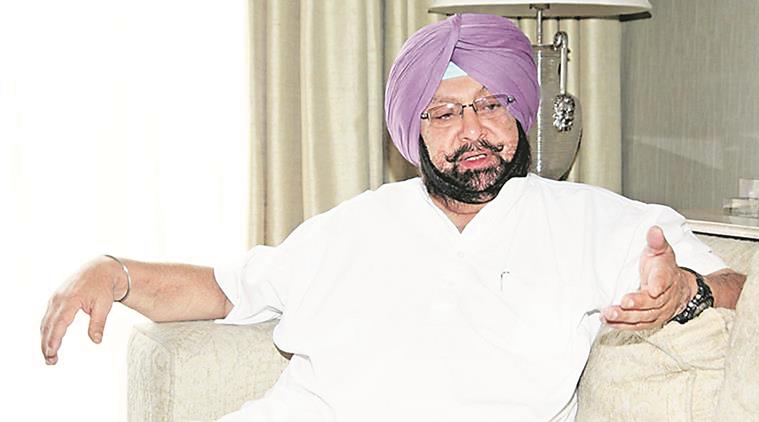After Operation Bluestar, Indira Gandhi insisted on keeping her Sikh guards. Today, Kashmir demands similar maturity and empathy

Punjab Chief Minister Amarinder Singh’s article (‘I applaud Major Gogoi’, IE, May 20 ) took me back to the bleak days of 1984, when Indira Gandhi initiated Operation Bluestar. The damage to the holiest shrine in Sikhism had a horrific impact on Sikhs. Emotions were very high.
The anger was primarily directed towards Indira. High priority was given to protect and secure her. There were two Sikh armed guards in her security detail. She was advised that they be transferred from the prime minister’s residence.
Indira refused, stating that Sikhs were part and parcel of the country. To shift them away from the PM’s home, only because of their religion, would cast a slur on our secularism and our constitution. The impact on the Sikh psyche would be disastrous. She preferred to place her faith in her Sikh guards. Horribly, it turned into a national tragedy. She was killed. But, in the process, she reaffirmed India’s commitment to a plural society, even in the profound crisis surrounding the attack in Amritsar and her death in Delhi. That may be Indira Gandhi’s most important contribution to the country.
Amarinder Singh’s article must be read carefully. Written by a Congress chief minister, and that too a Sikh, it calls for a distinguished service medal for the “daring” officer Major Nitin Gogoi. His achievement lay in using an innocent Kashmiri civilian as a human shield, bound to the bonnet of a jeep, leading an army column through a hostile area. The good Captain later calls it an aggressive role vis-a-vis the enemy. But is this poor man, frightened and scared to death, an enemy? Certainly not.
Indira would call him a citizen of India and treat him accordingly — with dignity and respect.
Sadly, neither the Captain, nor the Major pondered over what must have passed through the mind of the crowd which witnessed this sickening sight. Fortunately, no pellets were fired by the soldiers. Yet, by this unfortunate act, Major Gogoi may have made it very difficult to win the hearts and minds of the people of Kashmir.
Contrast this response with that of Indira. She was smart enough to understand the anger within her Sikh guards. Yet, by insisting that they be retained in her inner security, she opened the doors to Sikhs to rejoin the national mainstream. Both Amarinder Singh and Manmohan Singh owe their political success to the maturity and greatness of Indira at a very difficult time in our history.
Kashmir is an albatross for India, Pakistan, even the people of that state. The financial and military burdens are huge. In world affairs, it ties our hands in dealing with China, Europe, the Muslim world and the US. Yet, as a Muslim, I am convinced Kashmir must remain a part of India. It is the crown of secularism. India must do whatever necessary to win Kashmiris over. Yet, in 70 years, we have failed.
The Captain talks about a tooth for a tooth, a nail for a nail. He also says tough decisions are needed to address tough
situations. This is the language of K.P.S. Gill, whom the Captain admires very much. I wish there was an in-depth
study of how successful Gill was in calming Punjab after the tragedy of Indira’s assassination and the anti-Sikh riots in Delhi. What was the price paid in human lives lost? On one point, there is no doubt. Rajiv Gandhi’s prime ministership was doomed by the stain of the Sikh killings. A weak Rajiv could not stop the tragedy of Shah Bano or the rath yatra of L.K. Advani. In short, history never ends on a full stop. It just flows from one incident to another.
Nothing illustrates this better than the Jallianwala Bagh killings of 1919. The British Raj was all-powerful at that stage. A no-nonsense response to a public meeting at the Bagh, having only one entrance and no other exit, led to the killing of almost all those present. Indians were horrified. Britain made it worse, when its House of Lords presented the infamous General Reginald Dyer with a present and a sword of gold, honouring him as a Saviour of Punjab. That day, they lost their empire. I just hope we have not made the same blunder with Major Gogoi in Kashmir. A nail for a nail never wins hearts. Kashmir is not just geography. It is people. And we have to believe deeply in our own hearts that they are our brothers and sisters. Only then will Kashmiris become truly Indian. That requires the empathy of Indira, or the purity of a Mahatma who could calm Bengal almost single-handed in 1947. It troubles our conscience that both died violently. But that is the gist of greatness.
